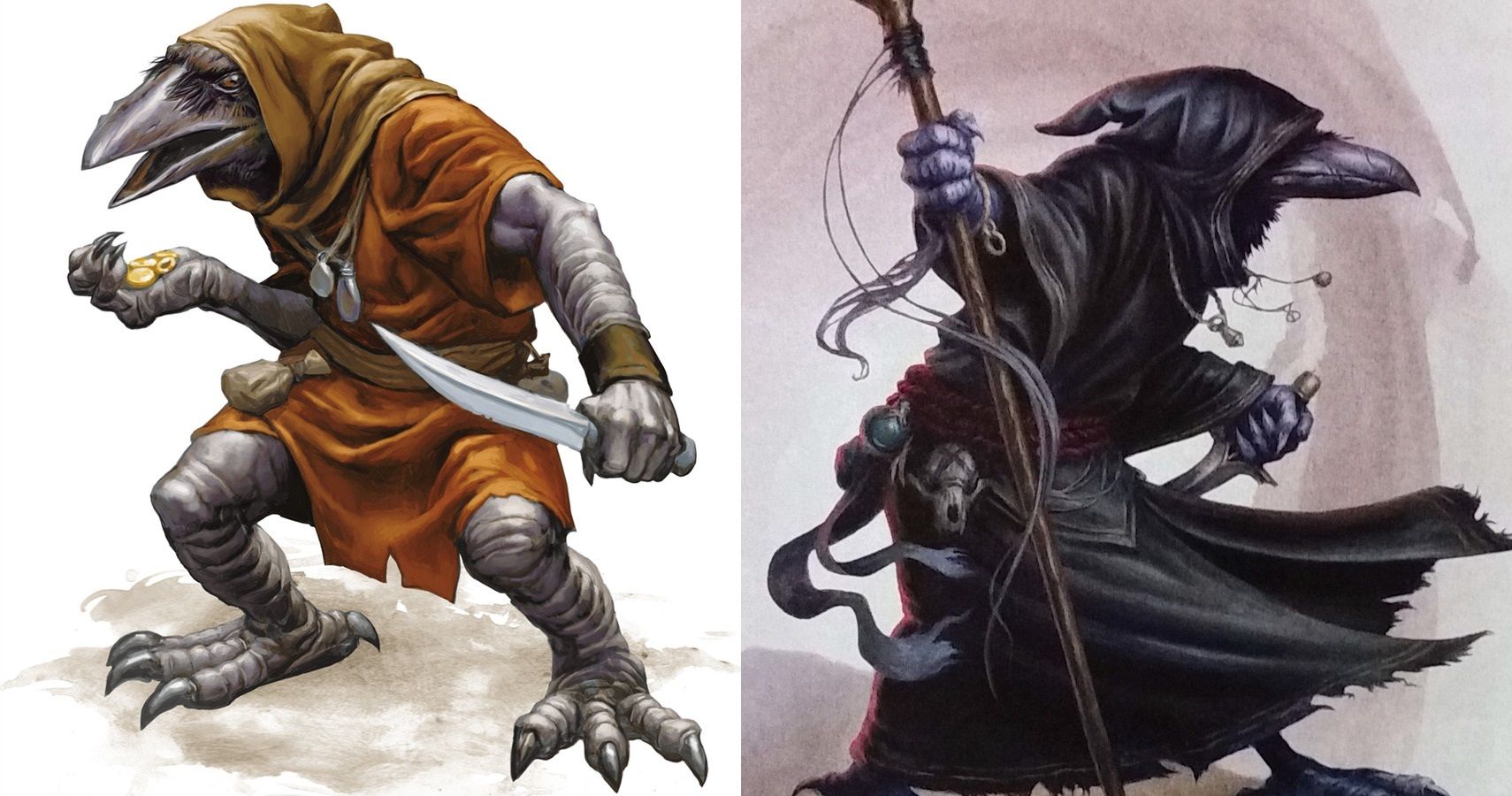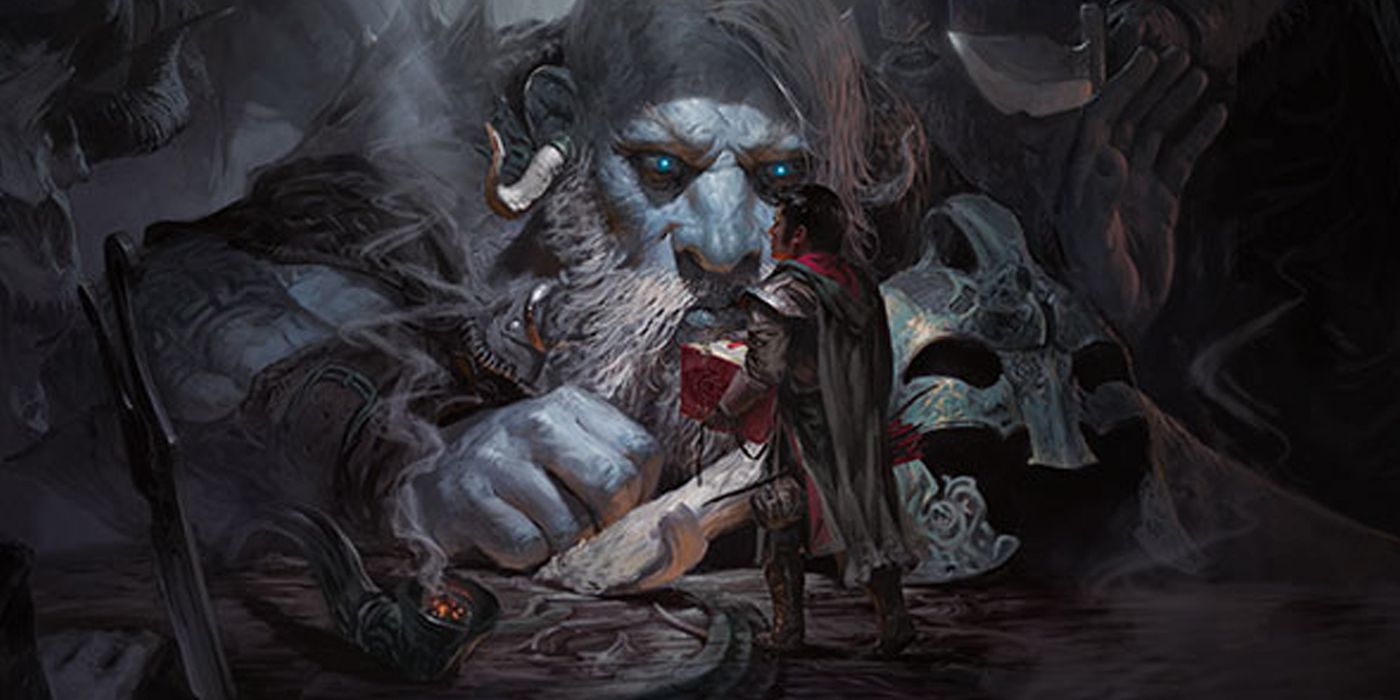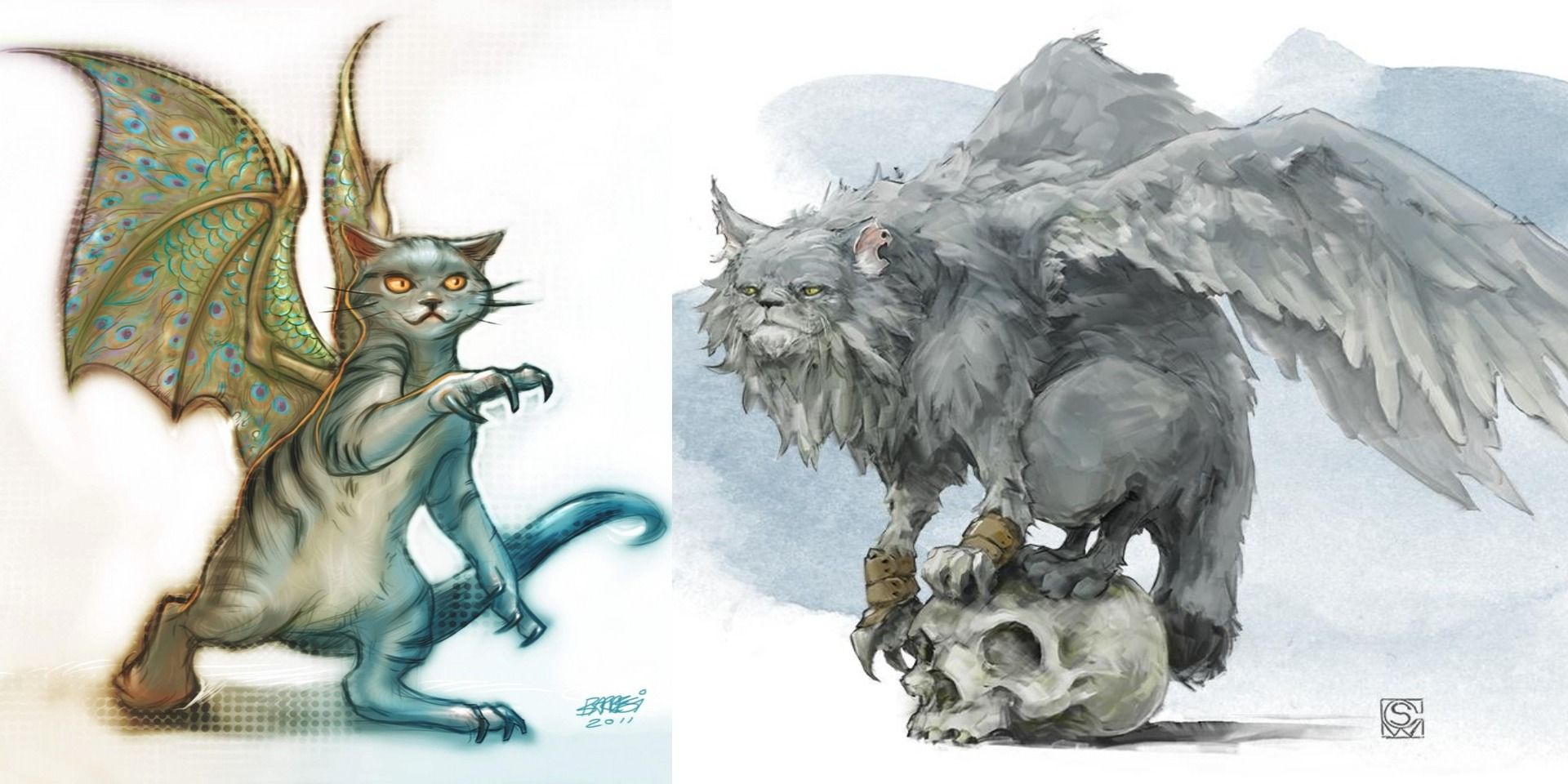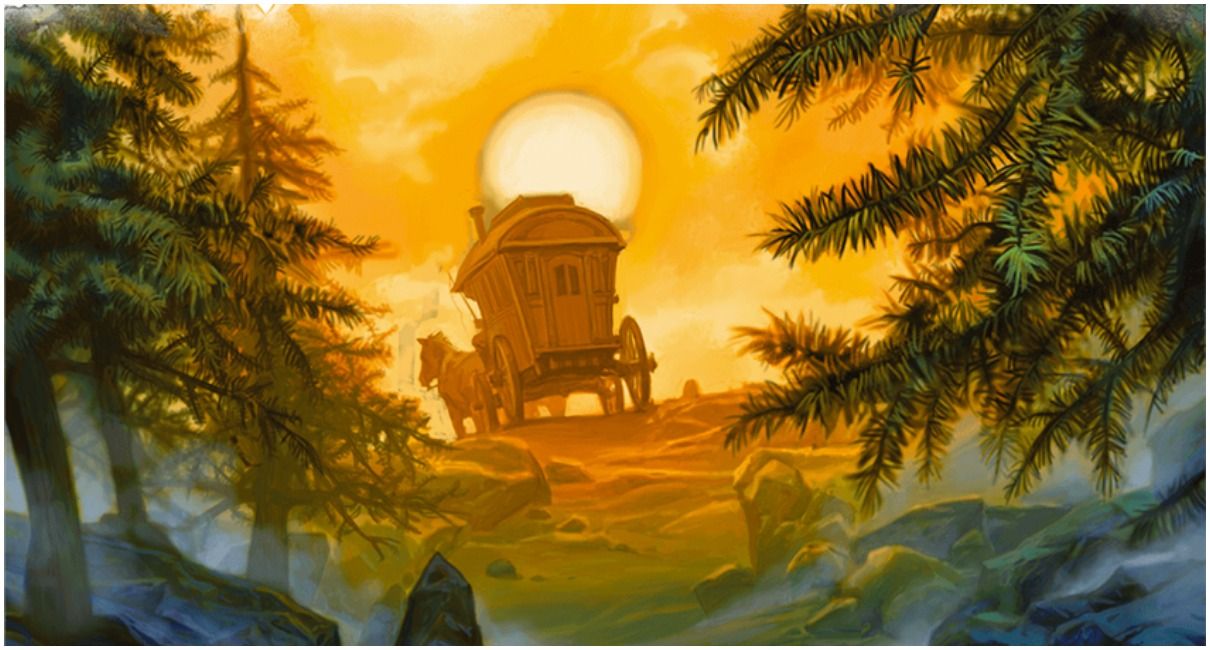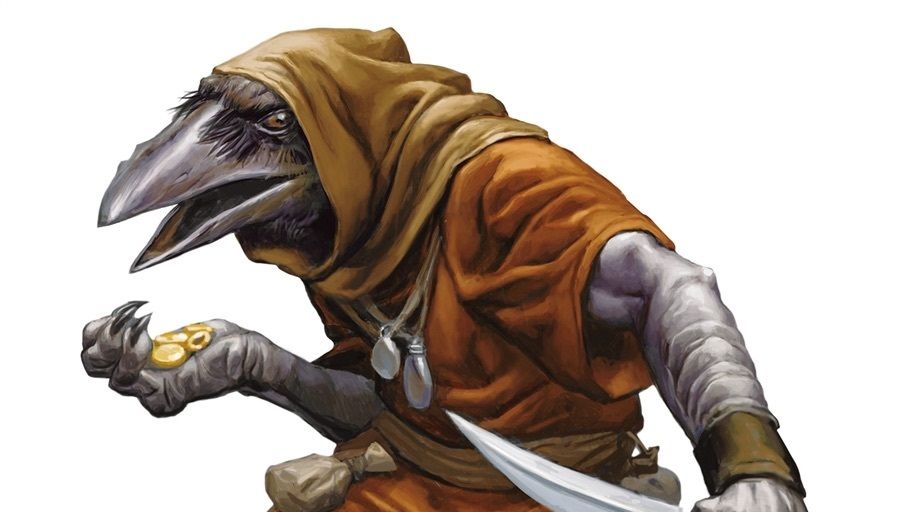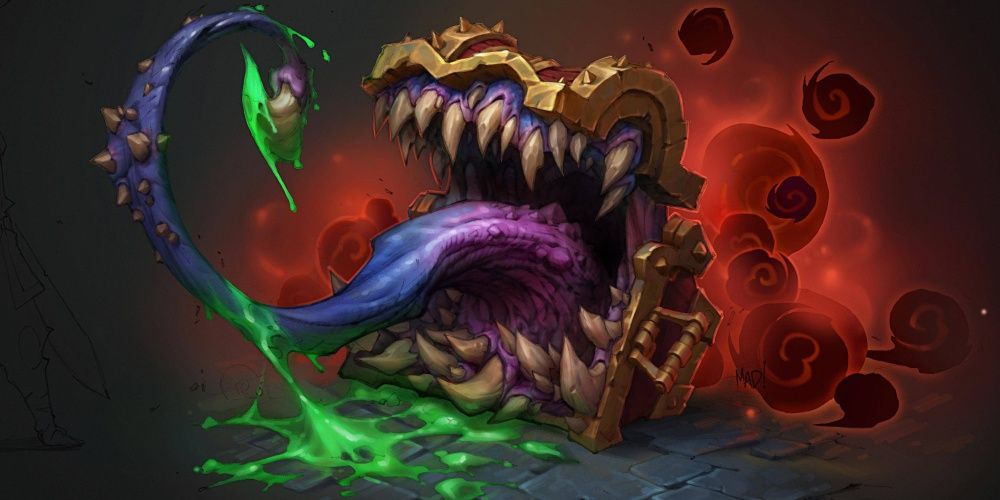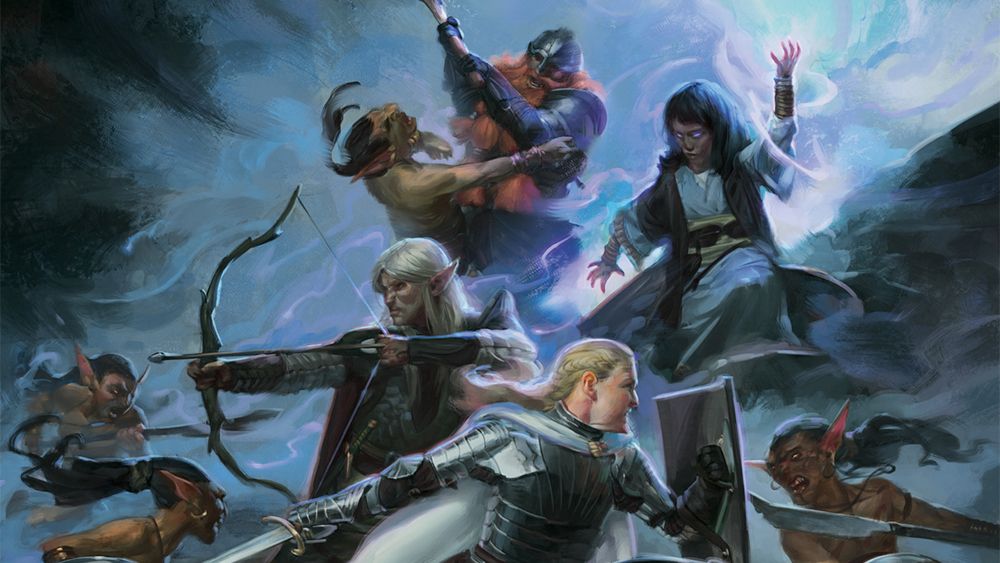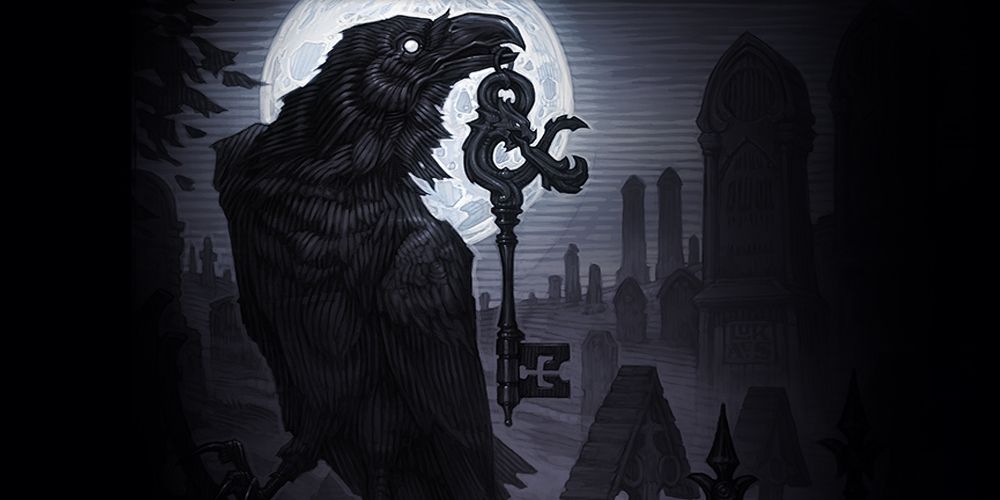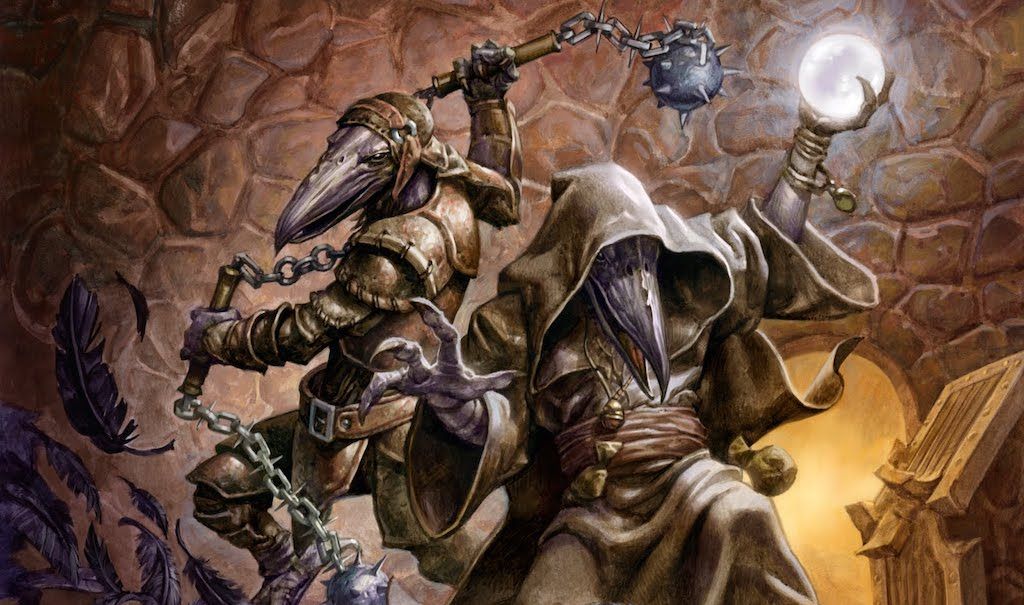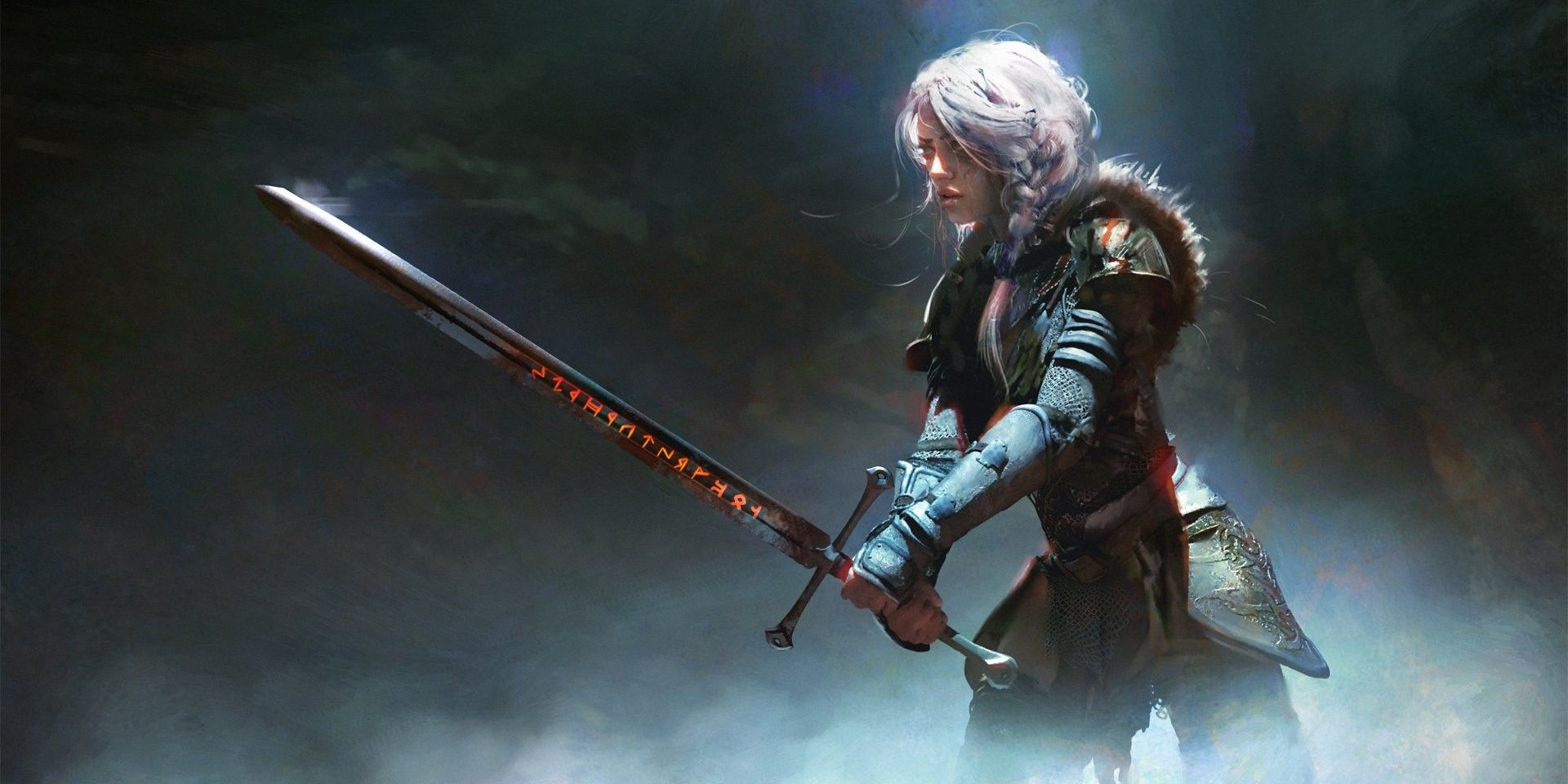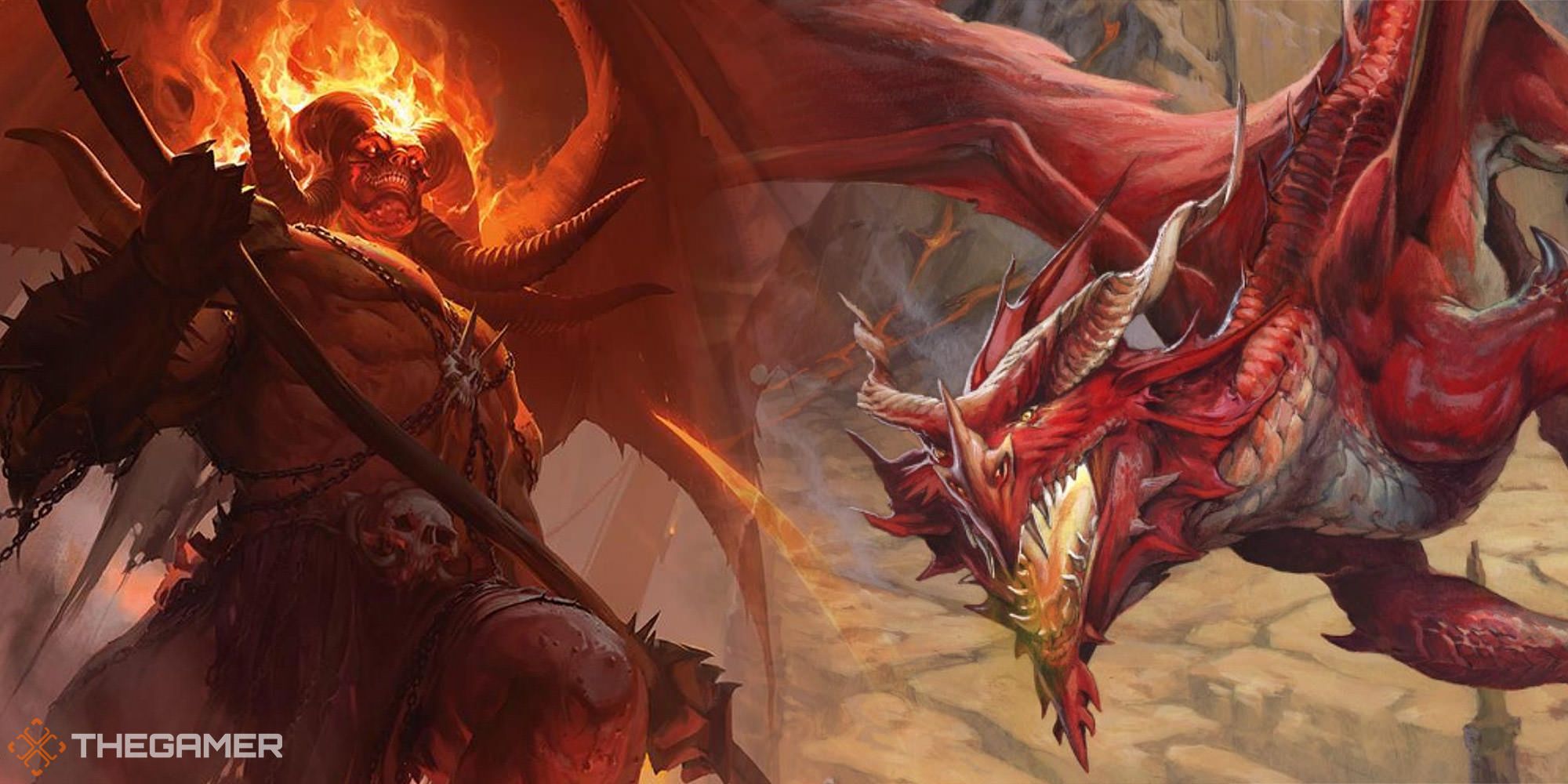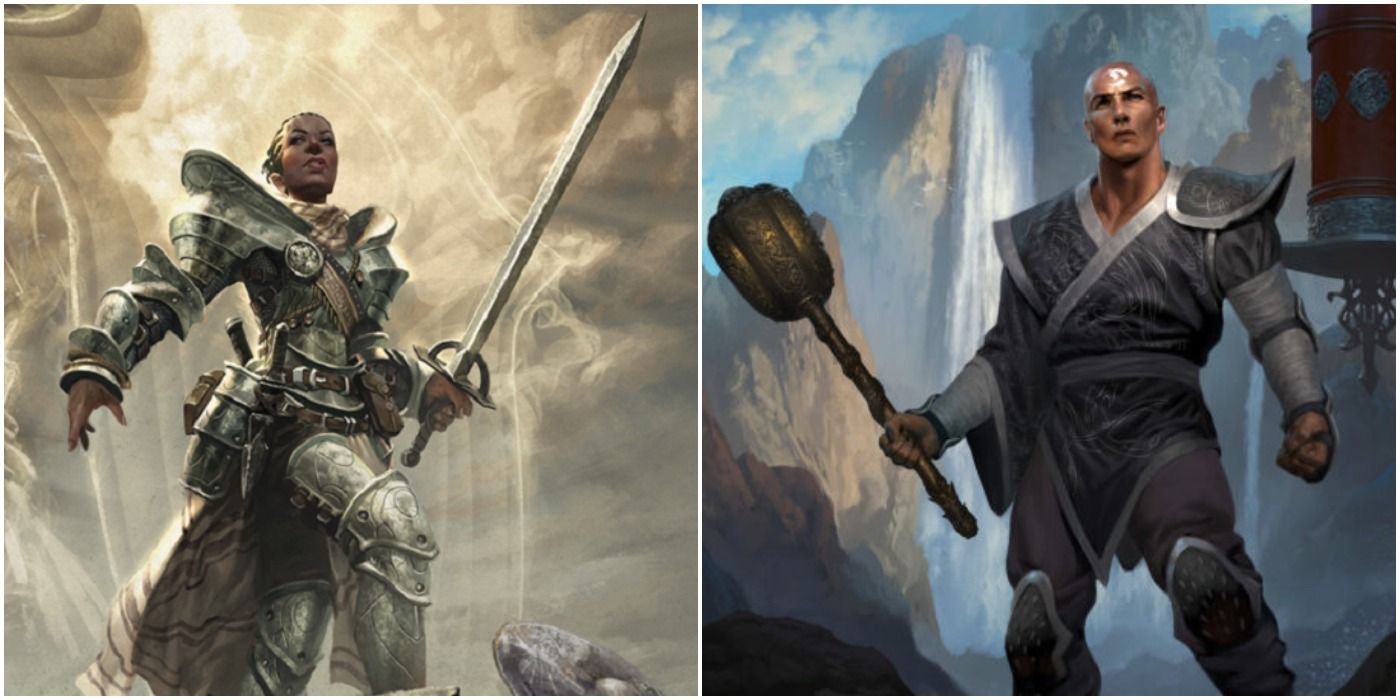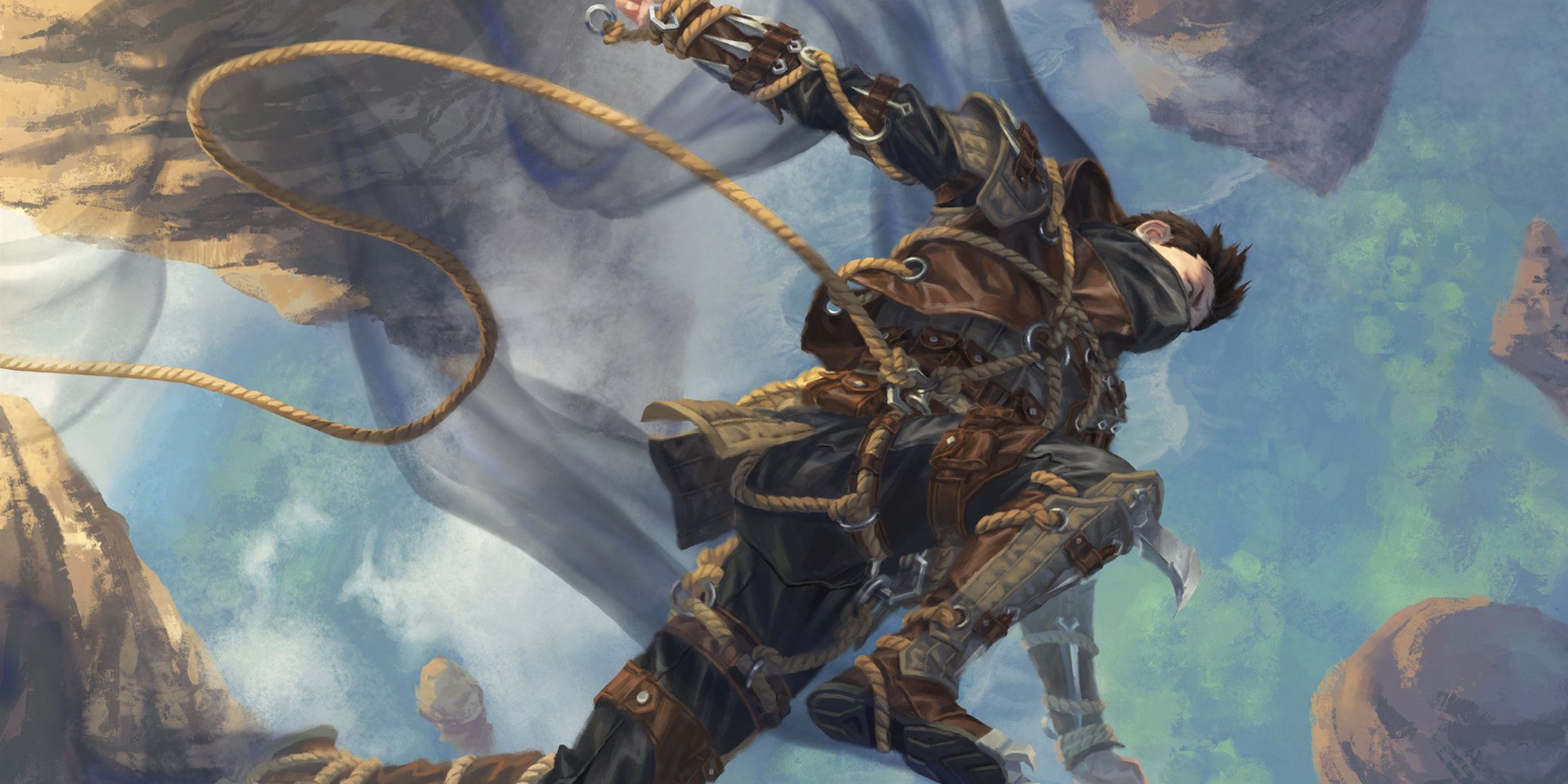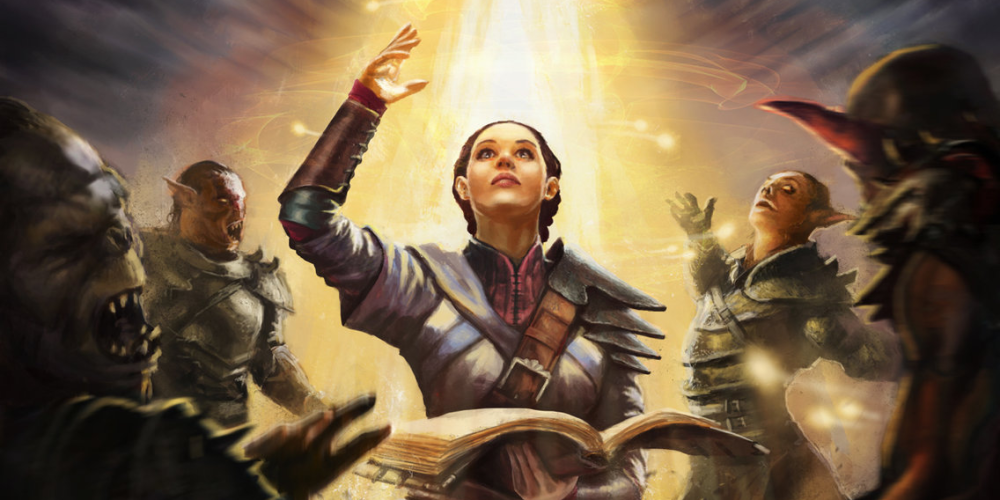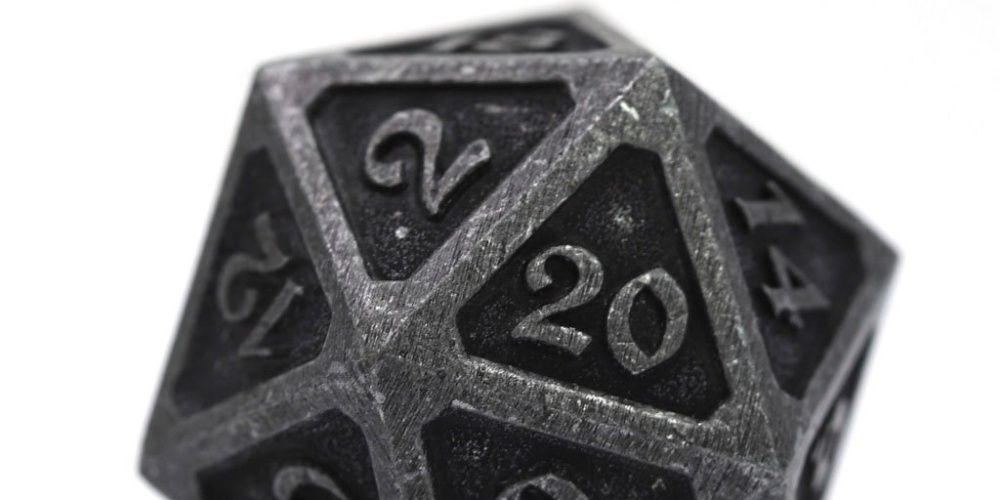Dungeons & Dragons first introduced the Kenku in Monster Manual III for Edition 3.5. They are a race of wingless avian creatures resembling ravens. Originally just another race of humanoid bad guys for the player characters to beat on, they have since been introduced as a playable race in the 5th Edition expansion, Volo's Guide to Monsters.
You might wonder what a Kenku player race adds to the game when there's already a perfectly serviceable bird race available. The Aarakocra race even comes with wings and a language, along with some decent ability scores and attributes. However, the Kenku have a lot of variety to mix into your roleplaying experience, especially if you're looking for a challenge. If you're thinking of playing one, consider some of these tips.
Updated November 5, 2021 by Kristy Ambrose: Up until recently, the Kenku were an obscure race that had a reputation for having some very unique and useful skills while being a challenge to RP. The appearance of Kiri, a Kenku character, in the Critical Role campaigns has increased interest in the race as playable characters.
The racial skills cover abilities like Mimicry and Forgery, handy abilities unique to the Kenku. The popularity of the Kenku class continues to grow, despite critics who claim the race is "broken" in the sense that it's impossible for the human mind to play. Here are a few more things to keep in mind when playing a member of this elusive, mysterious, and often misunderstood race.
16 Practice Creative Communication
According to their legends, Kenku were robbed of the power of speech as punishment for plotting to overthrow their creator. Instead of having regular old conversations, Kenku use the power of mimicry in place of language. That's why spells that translate languages don't work on a Kenku, as Kiri's appearance in Critical Role demonstrates.
It adds a little extra challenge to roleplaying, but part of the fun of the Kenku is learning to get creative with your speech. How unsettling would it be to have some many-voiced horror trying to haggle the price of a healing potion? You might turn these little in-character quirks to your advantage. Use your terrible voice to intimidate the shopkeeper and see how that goes.
15 Pets And Companions
Depending on the class, background, or Feats the Kenku knows, it's possible they can have a companion animal. There are several types of creatures, both magical or non-magical depending on the adventure and module being used, that can communicate for and with the Kenku. This can be through direct speech or other, less conventional means like telepathy or even a unique language.
An obvious choice here is the Wizard's spell Find Familiar, and there's also a Warlock version of this spell called Pact of the Chain. These pets are classified as demons or fey creatures. Classes like Druids and Rangers have a natural connection to many of nature's creatures and can have real animal companions instead of magical ones. An Artificer could build their own companions. All of the above are ideal classes for a Kenku, making a talking pet a logical step.
14 Remember Social Distancing
The Kenku race has to deal with a lot of pressure in a social setting. They often live on the fringes of society and are inherently associated with petty crime, which means they can bring down the reputation of a party overall and can be the scapegoat for anything that goes wrong around them.
This overlaps into other facets of their character when it comes to both personal characteristics and career choices. A lack of communication skills often makes them easy prey for grifters and con-men who need a patsy for their schemes.
13 A Typical Kenku Backstory
Fans of Critical Role who feel inspired by Kiri should also be careful not to try and copy her character in stats or appearance. However, it's worthy to note the confusion as to how she would fit in with the party, and you should be prepared to deal with the same insecurity.
If you don't know where to start, a general picture of a Kenku's existence might help. The Kenku were originally monstrous creatures, living in ragtag groups of brigands or assassins. They are as a race no longer able to fly. Their flavor text explains that you often find flocks of Kenku living in tall, dilapidated towers because they yearn to be close to the sky. That's just the kind of tragedy ripe for creating an adventurer. According to their description, they even now tend to be minions and excel at following orders.
12 Know Your Personal History
With your character's backstory in mind, you can start to build a fully-fledged character rooted in Kenku history and culture. The Kenku have a pretty incredible capacity for recall.
Once you've come up with a history for your character, start thinking about what sounds they might have heard before. The sounds of a bustling city or of a living forest? Have they lived around other races? Do they know any words at all? It can make a big difference during the game.
11 The Art Of Mimicry
The Kenku curse didn't just take away their voices; it also gave them an incredible power of mimicry. You can use a Kenku's natural mimicry as a means of distraction, such as the sounds of shouting to draw off some guards. Or you can trick an NPC into revealing sensitive information, maybe by making them believe you're a close friend. The opportunities are limitless.
However, this makes talking to a Kenku a weird experience. For any NPCs not used to that kind of interaction, it might even be an unpleasant one, having some bird person make incomprehensible noises at you. Or maybe your character is someone who's been around people a long time and knows a lot of words, only they're all in the voices of different people.
10 Party Formation
One of the first conversations a DM will have with the Kenku player is how they came to be a member of an adventuring party. Considering the Kenku have issues with communication and the difficulty they have integrating with mainstream society, the DM might need to put together a special scenario to bring the Kenku into the fold.
A private session that includes how the Kenku came to meet or even need to have any contact with other adventurers may be warranted. It would definitely take some creative storytelling, but that's what D&D is all about.
9 Expert Forgery
The Kenku ability of mimicry and memory doesn't just extend to their voices. They also have a trait called Expert Forgery, which allows them to recreate any documents or handwriting with ease, as long as they've seen a sample of the original.
Do you need certain paperwork to get into a city legally? Call a Kenku. Or maybe you want to draft a note that will lure some important figure out of the safety of their fortress. As long as you can get your claws on a sample, you're all set. The Kenku skill set really lends itself to creative problem-solving, so not every session has to turn into a fight.
8 Kenku Professions
Even D&D characters understand that the bills need to get paid, which is why so many of them take on various professions. These can be related to their adventuring abilities, in the case of Fighters that moonlight as mercenaries or bodyguards, or something that's unrelated to their dungeon-delving and monster-slaying. Cooks and farm laborers are also in short supply, for example.
Anything that involves the most innate of Kenu talents, that being forgery, is always at the top of the list. This doesn't have to be a criminal act, however, as this is just a very accurate form of copying, and it's like that the local lord or the monastery will need new versions of certain important documents. Kenku Bards can make a fine living either as singers for hire or busking as the party travels.
7 Dexterity Skills
Dexterity is a versatile character stat that is used by a variety of classes. The Dexterity skill has positive effects on almost everything. The Kenku get a +2 boost to their Dexterity score, and that's a nice, fat bonus.
Anyone who wants to play a character with a heightened skill for various abilities related to spellcasting, weapons, or stealth-related activities would be wise to roll a Kenku. Couple that Dexterity bonus with the Expert Forgery skill, and you've got some amazing opportunities.
6 Finesse Weapons
There are a variety of finesse weapons in the D&D universe, and their damage depends on a character's Strength or Dexterity. That's yet another advantage of the Kenku's high Dexterity score. Anyone playing a Kenku should make sure they're proficient with finesse weapons, and there's a wide variety to choose from with an equally impressive number of abilities. These often include one-handed weapons, like daggers, rapiers, and axes, and many of them have thrown properties in case your character needs a ranged option.
5 Moral Alignment
Just because the Kenku are found in Volo's Guide To Monsters and have a shadowy, tragic past doesn't mean that they're inclined to a certain moral alignment. This is one area where the Kenku player, which has to get used to mimicry as opposed to independent thought, has more room to be creative.
Alignment is more about class than race. Kenku have a reputation for being thieves and brigands, and therefore of an Evil or Neutral alignment, but that doesn't have to ring true for every individual. Clerics, for example, often follow the alignment of their chosen deity and that's an ideal class choice for a Kenku considering the Wisdom buff.
4 Kenku And Wisdom
Kenku might seem like bumbling or tragic characters, but don't get the wrong impression that they're always going to be the weak link in your party and can't be of any refined class. These creatures have seen a lot of hardship and have +1 to their Wisdom.
This overlaps with other Kenku skills. Just because a Kenku can't speak doesn't mean that they can't read, and their skills at mimicry make them talented at learning and memorizing spells. The opens up a lot of doors for characters that rely on Wisdom for their spellcasting powers.
3 Ideal Classes For Kenku Characters
The Dexterity bonus makes the Kenku an obvious choice for a Rogue and their in-game history supports that. Many of the Kenku are assassins or thieves, so it only makes sense their statistics would reflect these abilities. The Cleric is an obvious choice for the Wisdom bonus, and there are some interesting Kenku Cleric builds, but there are other options, too.
Monks, Druids, and Rangers also benefit from a high Wisdom stat. A Dexterity and Wisdom boost means a Kenku bard is a decent idea, perhaps one that can mimic the sound of an instrument.
2 Make Use Of Lore
The Kenku lore is compelling and dynamic. It's what draws a lot of players to the race in the first place. Not many other player races have so much meat for roleplaying and choosing motives baked right into the mechanics of the race.
You could be playing a Kenku who's trying to find their creator and earn their voice back. You could be an aspiring poet desperately struggling against the curse of "no creativity." Or you can even just be a wizard hoping to learn the Fly spell and rub it in your god's face.
1 Work With Your DM
Admittedly, Kenku with all their quirks might be a difficult race to play. If you're a first-time player or are unsure about getting deep into the roleplay aspect of the game, it's understandable to be intimidated. It's highly recommended that you use your DM as a resource if there's anything you want to discuss your character and how they fit into the campaign.
A common solution to the speech issue is having the character be gifted normal speech by a god or patron as long as they do the god's bidding. Your DM is there to help, so see what you can come up with together.

